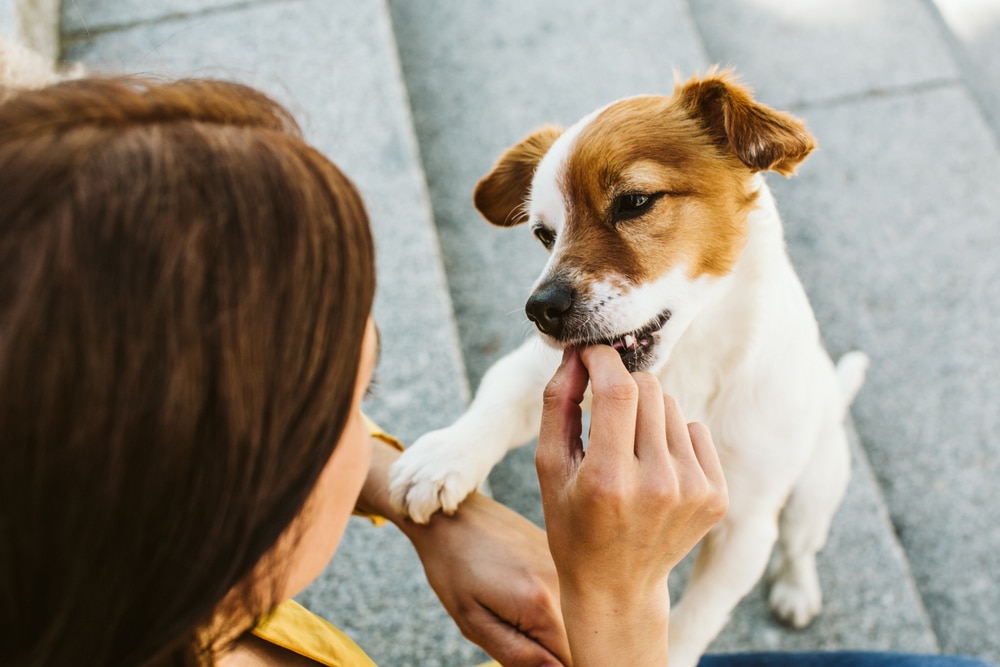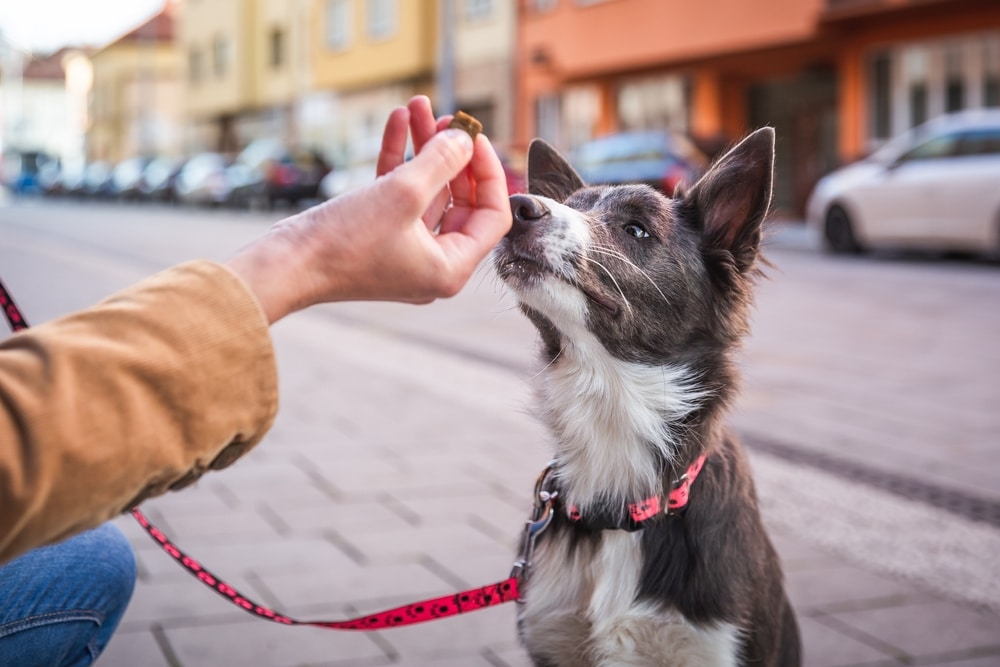Dogs are our best friends and loyal companions, so it’s only natural that we want to show them how much we appreciate their love and devotion. Positive reinforcement is one of the best ways to reward your pup for good behavior, as it encourages them to continue exhibiting desirable actions. But what exactly counts as a positive reward?
The best ways to reward a dog include verbal praise, petting, physical contact, treats or unique toys, playing games together, and allowing them extra freedom. Verbal praise helps dogs associate good behavior with positive reinforcement. Treats are great for teaching new tricks and reinforcing old ones, while unique toys help keep their interest and make them feel rewarded.
Table of Contents
Benefits Of Rewarding Your Dog
Here are some benefits of rewarding your dog.
Positive Reinforcement Encourages Good Behavior
Positive reinforcement is an essential tool for teaching and maintaining desirable behaviors in dogs. Rewards encourage the dog to repeat them more often and increase the likelihood of their continued performance.
Rewarding a dog can be a powerful way to get a desired behavior from them, as well as a great way to build an enjoyable relationship with it.
Strengthens Your Bond With Your Dog
Rewarding allows you to communicate with your dog and helps it understand what you expect from it.
Rewarding your dog for good behavior can create a stronger bond between you and your dog, as it reinforces the affection and trust between you.
Types Of Rewards For Dogs

There are many different types of rewards that you can use to positively reinforce good behavior in your dog. Here are some of the most common types of rewards.
Praise And Affection
Verbal praise, such as saying “good boy” or “good girl,” can be a highly effective reward for many dogs. Consistent and enthusiastic praise can help increase your dog’s confidence and build their trust in you.
Physical affection, such as petting or cuddling, can also be a rewarding experience for dogs. Touch is an essential way for dogs to communicate with one another and with their human companions.
Food-Based Treats
Food-based treats are a popular and effective form of reward for dogs. Most dogs are highly motivated by food, making food-based treats an effective way to reinforce good behavior. Food-based treats are easy to carry and use on the go, making them a convenient reward for training sessions and everyday life.
Also, there are many different types of food-based treats available, allowing you to choose the best option for your dog based on its dietary needs, preferences, and size.
Toys And Games
Toys and games can provide mental stimulation for dogs, helping keep their minds active and engaged. Playing with toys and games can help strengthen the bond between you and your dog as you both engage in fun and interactive activities together.
Many toys and games, such as fetch and tug-of-war, provide an excellent form of exercise for dogs, helping keep them physically active and healthy.
When using toys and games as rewards, it’s essential to choose appropriate toys for your dog’s size, breed, and activity level.
Other Rewards
In addition to food rewards, praise, petting, and toys, a variety of other reward types can effectively motivate your dog. These include letting them sleep in the bed or on the couch for a night, taking them for extra long walks, or playing special games.
Another reward that is often overlooked is giving your dog the freedom to explore and sniff around a new area, such as an off-leash park or beach. This can be a very rewarding experience for a curious pooch!
Additionally, you may want to consider enrolling your pup in activities like agility and rally obedience classes, which provide physical and mental stimulation and reward good behavior with praise and treats.
Tips For Using Rewards Effectively
Here are some tips for using rewards effectively in your dog training:
Give Rewards Immediately After The Desired Behavior Is Exhibited
Giving rewards immediately after the desired behavior is exhibited is a crucial aspect of positive reinforcement training. When you reward your dog immediately after they exhibit the desired behavior, you increase the likelihood your dog will repeat the behavior in the future.
Immediate rewards are more effective than delayed rewards because dogs have short-term memories and may not associate the reward with the desired behavior if too much time has passed. By giving the reward immediately, you help establish the connection between the behavior and the reward and reinforce the behavior in your dog’s mind.
Use Different Types Of Rewards To Keep Things Interesting
Different dogs have different preferences, and using a variety of rewards can help you find the most effective way to reinforce good behavior in your individual dog. By using a variety of rewards, you can keep things interesting for your dog and avoid boredom and decreased motivation.
Additionally, by switching up the rewards you use, you can also keep your dog guessing and maintain their level of engagement and motivation in training.
How To Avoid Over-Rewarding Your Dog
Over-rewarding your dog can lead to decreased motivation and decreased effectiveness in training. Here are some tips to avoid over-rewarding your dog.
Limit Treats
While food-based treats can be an effective form of reward, it’s important to limit the number of treats you give your dog during training. Over-rewarding with treats can lead to weight gain and decreased motivation in your dog.
Gradually Phase Out Rewards
As your dog becomes more skilled at exhibiting the desired behavior, gradually phase out rewards until they are no longer needed.
Avoid Using Rewards As Bribes
Rewards should be used to reinforce good behavior that your dog has already exhibited, not as bribes to get them to perform a desired behavior. Using rewards as bribes can lead to over-rewarding and decreased motivation in your dog.
In Conclusion: What Are The Best Ways To Reward A Dog?
Rewards effectively reinforce positive behavior and strengthen the bond between you and your dog. Use verbal praise, physical affection, treats, toys, or games as rewards immediately after desired behaviors are exhibited. Avoid over-rewarding by limiting treats, phasing out rewards gradually, and avoiding using them as bribes.
So, how do you plan to reward your dog for good behavior? Do you have any additional tips? Let us know in the comments below!
